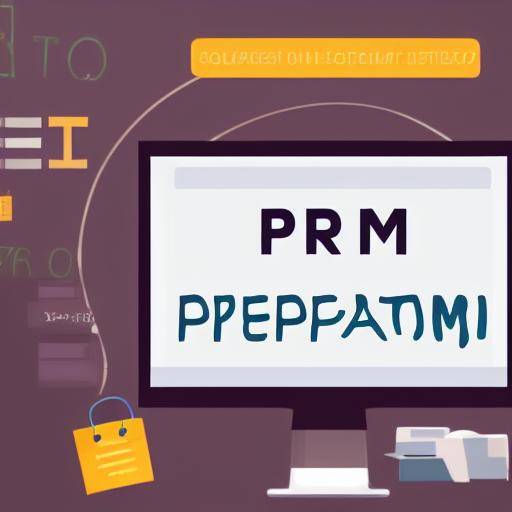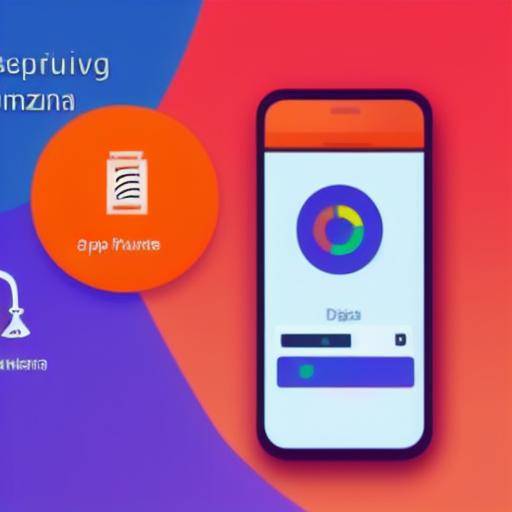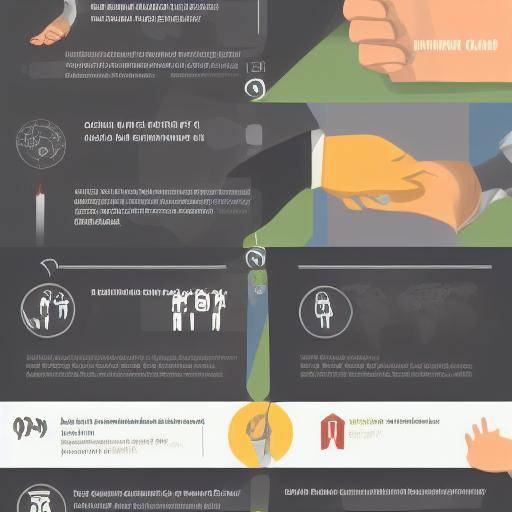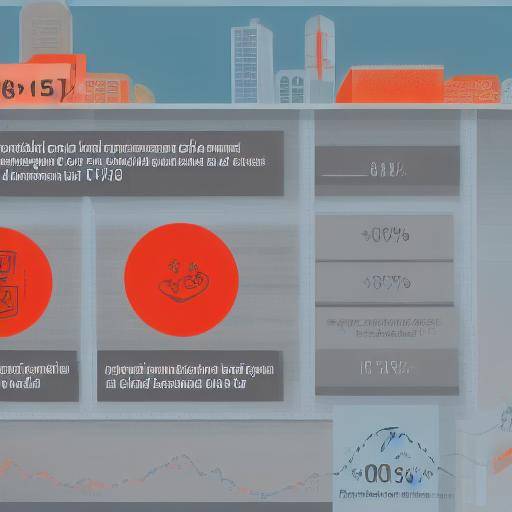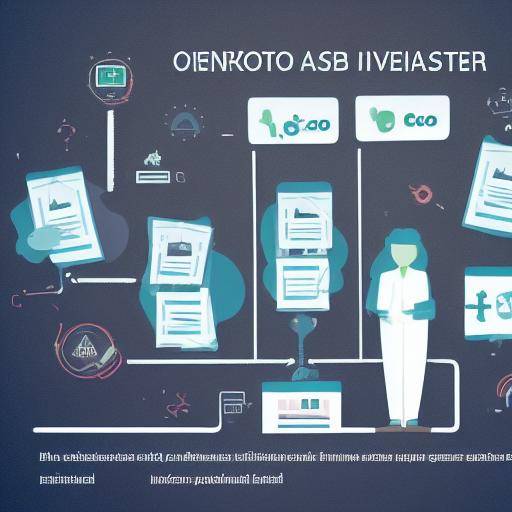
Debt consolidation may seem like an attractive solution for those facing financial difficulties, but it is important to understand their implications before making hasty decisions. In this article, we will explore how to avoid falling into the debt consolidation trap, focusing on informed precaution, evaluation and decision-making. You will learn to assess whether debt consolidation is the right choice for you, to make informed decisions and to avoid possible traps. Continue reading to discover practical tips, detailed information and expert opinions that will help you navigate this topic with confidence and knowledge.
Caution: Understanding the risks of debt consolidation
In this section, we will focus on caution in considering debt consolidation. It is essential to understand the risks and challenges associated with this process before taking any action.
What is debt consolidation and why should you be cautious?
Debt consolidation involves combining multiple debts into one, usually through a new loan or a credit line. Although it may seem like a quick solution, it is crucial to have caution. The simple act of debt consolidation does not guarantee long-term financial improvement.
Potential risks of debt consolidation
- Longer-term interest payments: Although debt consolidation can reduce monthly payments, you may end up paying more interest over time.
- Guarantees and guarantees: Some forms of debt consolidation may require personal guarantees, such as your home or car, which puts your assets at risk.
- Possible impact on your credit score: Open a new credit account or close existing accounts can affect your credit score.
Evaluation: Determine whether debt consolidation is appropriate for you
Before embarking on the debt consolidation process, it is crucial to undertake a thorough assessment of your financial situation. This will help you determine whether debt consolidation is the right choice for you.
Steps to assess debt consolidation
- Scan your existing debts: Consider carefully your current debts, including interest rates, payment periods and conditions.
- Calculate the full long-term costs: It uses loan calculator tools to understand the total costs of debt consolidation.
- Evaluate your options: Consider alternatives to consolidation, such as renegotiation of interest rates with your existing creditors.
Decisions: Making informed decisions to avoid financial traps
Once you've evaluated all the options available, it's time to make informed decisions. These decisions can significantly influence your long-term financial well-being. Then we will explore how to make informed decisions and avoid possible financial traps.
Advice for informed decision-making
- seeks financial advice: Consultation with professional financial advisers can provide an impartial and expert vision.
- Understand the terms and conditions: Before committing to any form of debt consolidation, make sure you fully understand terms and conditions, including interest rates, payment deadlines and possible penalties.
- Evaluate the long-term impact: Consider how debt consolidation will affect your financial situation in the coming years, not just in the short term.
Conclusion
In short, debt consolidation can be a valuable tool for those seeking to simplify their finances, but it is crucial to address this process with caution, to undertake a thorough assessment and to make informed decisions. By understanding risks, evaluating your individual circumstances and making decisions based on solid information, you can avoid falling into the debt consolidation trap# How to avoid falling into the debt consolidation trap
Debt consolidation may seem like an attractive solution for those facing financial difficulties, but it is important to understand their implications before making hasty decisions. In this article, we will explore how to avoid falling into the debt consolidation trap, focusing on informed precaution, evaluation and decision-making. You will learn to assess whether debt consolidation is the right choice for you, to make informed decisions and to avoid possible traps. Continue reading to discover practical tips, detailed information and expert opinions that will help you navigate this topic with confidence and knowledge.
Caution: Understanding the risks of debt consolidation
In this section, we will focus on caution in considering debt consolidation. It is essential to understand the risks and challenges associated with this process before taking any action.
What is debt consolidation and why should you be cautious?
Debt consolidation involves combining multiple debts into one, usually through a new loan or a credit line. Although it may seem like a quick solution, it is crucial to have caution. The simple act of debt consolidation does not guarantee long-term financial improvement.
Potential risks of debt consolidation
- Longer-term interest payments: Although debt consolidation can reduce monthly payments, you may end up paying more interest over time.
- Guarantees and guarantees: Some forms of debt consolidation may require personal guarantees, such as your home or car, which puts your assets at risk.
- Possible impact on your credit score: Open a new credit account or close existing accounts can affect your credit score.
Evaluation: Determine whether debt consolidation is appropriate for you
Before embarking on the debt consolidation process, it is crucial to undertake a thorough assessment of your financial situation. This will help you determine whether debt consolidation is the right choice for you.
Steps to assess debt consolidation
- Scan your existing debts: Consider carefully your current debts, including interest rates, payment periods and conditions.
- Calculate the full long-term costs: It uses loan calculator tools to understand the total costs of debt consolidation.
- Evaluate your options: Consider alternatives to consolidation, such as renegotiation of interest rates with your existing creditors.
Decisions: Making informed decisions to avoid financial traps
Once you've evaluated all the options available, it's time to make informed decisions. These decisions can significantly influence your long-term financial well-being. Then we will explore how to make informed decisions and avoid possible financial traps.
Advice for informed decision-making
- seeks financial advice: Consultation with professional financial advisers can provide an impartial and expert vision.
- Understand the terms and conditions: Before committing to any form of debt consolidation, make sure you fully understand terms and conditions, including interest rates, payment deadlines and possible penalties.
- Evaluate the long-term impact: Consider how debt consolidation will affect your financial situation in the coming years, not just in the short term.
Conclusion
In short, debt consolidation can be a valuable tool for those seeking to simplify their finances, but it is crucial to address this process with caution, to undertake a thorough assessment and to make informed decisions. By understanding risks, evaluating your individual circumstances and making decisions based on solid information, you can avoid falling into the debt consolidation trap.Caution: Understanding the risks of debt consolidation
Debt consolidation may seem to be a tempting solution for those struggling with multiple financial obligations. However, it is essential to proceed with caution and understand the risks associated with this process before making a decision. The simple action to consolidate debts does not guarantee a long-term improvement in your financial situation. We will then explore the potential risks of debt consolidation to help you make informed decisions.
What is debt consolidation and why is it important to have caution?
Debt consolidation involves joining multiple financial obligations in one, usually through a new loan or credit line. Although it may seem like a quick solution, it is crucial to have caution. Consolidation does not necessarily reduce total costs in the long term, and in some situations, it could result in higher interest payments compared to individual debts. In addition, some forms of debt consolidation may require personal guarantees, such as your home or car, which puts your assets at risk. It may also affect your credit score by opening a new credit account or closing existing accounts.
To avoid falling into the debt consolidation trap, it is crucial to understand these risks and to assess whether the benefits clearly exceed the potential negative consequences. Continue reading to find out how to assess whether debt consolidation is the right choice for you and how to make informed decisions to protect your long-term finances.











